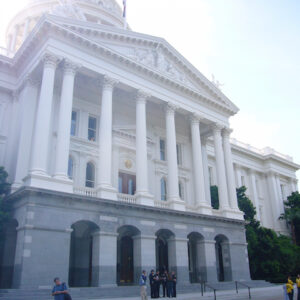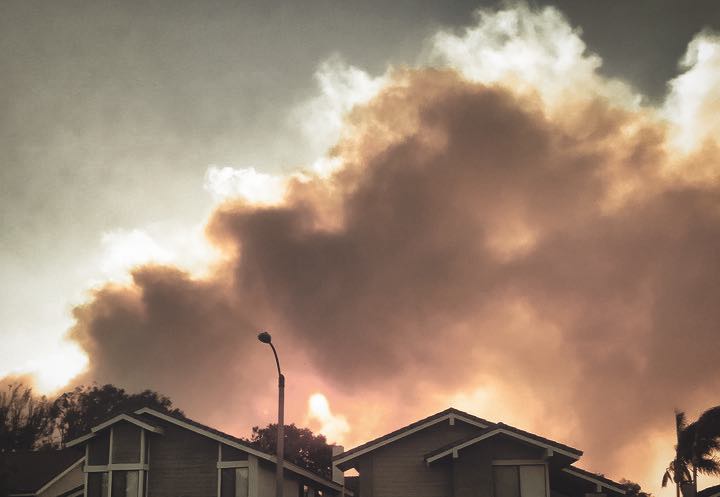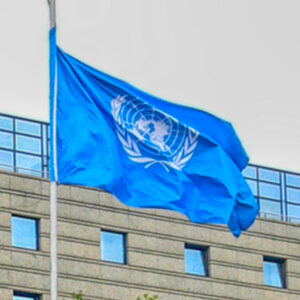Carbon Taxation for Climate Change Mitigation
The “public bad” that is carbon pollution must be taxed and otherwise regulated into discontinuation since other steps have not yet solved climate change and may not. This article demonstrates that with the right amount of voter support, which exists, carbon taxation can be implemented in a progressive manner that ends up with the significant side benefit of alleviating poverty at the national or global levels. Thus, a “universal basic income” can be created through revenue recycling either within each jurisdiction or, with more buy-in than what is currently likely to be the case, at the global level at a later point in time. To be effective, a carbon tax would have to start imminently and potentially at levels between…
Climate compensation cases to head to court
Lawyers often fail to use the most up-to-date scientific evidence on the cause of rising temperatures, a new study finds. As a result, little compensation has been given to climate change victims so far. That could change soon, however. There have been some notable successes for environmental groups, such as in a recent case against Shell decided by a civil court in the Netherlands. So far, around 1,500 climate-related lawsuits have been brought before the courts around the world. This number is estimated to rise. Attorneys and judges thus need to be prepared to keep pace with the work of attribution scientists, so that their judgements are in line with the latest scientific evidence.
Child slaves on cocoa farms
The U.S. Supreme Court just ruled that “general corporate activity” does not in and of itself create jurisdiction for American federal courts to hear tort cases under the Alien Tort Statute (“ATS”). To plead facts sufficient to support a domestic application of the ATS, plaintiffs must allege more domestic conduct than the general corporate activity that is common to most corporations. In the case involving Nestlé USA and Cargill, two major U.S. corporations, six individuals from Mali alleged that they were trafficked into Ivory Coast as child slaves to produce cocoa. The American companies do not own or operate cocoa farms in Ivory Coast, but they do buy cocoa from farms located there and provide those farms with technical and…
“Ecocide” as international crime
An expert panel commissioned by the Stop Ecocide Foundation has proposed the recognition of “ecocide” as a new international crime in the Rome Statute of the International Criminal Court (“ICC”). The ICC already recognizes genocide, crimes against humanity, war crimes, and the crime of aggression. The ICC is the only global mechanism which directly weighs in on the criminal justice systems of its 123 member states. It has been 75 years since the phrases “genocide” and “crimes against humanity” were first used in the Nuremberg Trials. But why a new crime now? Per the Foundation: “Innovation and change on a major scale are required for humanity to thrive sustainably. Ecocide law can level the playing field for solutions and stimulate…
Legislative Change Proposal, California Judicial Elections
Dear Governor Newsom and California legislators: I write to suggest that you initiate a legislative change of Section 13107 of the California Election Code. The 2018 change of the Code made it virtually impossible for anyone but prosecutors (“deputy district attorneys”, hereinafter “DDAs”) and certain other government attorneys to become elected judges. This is highly inequitable for other types of candidates and thus democratically undesirable. This issue requires urgent attention. A legislative change would have no fiscal effect. Recommendation: Section 13107 should be changed so that only the ballot designation “attorney at law” can be used by anyone running for office. Allowing DDAs and others already in government employ to continue using both their full titles and locations (e.g. “Maria…
Airline Bailouts and Climate Change Re-Regulation
COVID-19 is wreaking havoc around the world and is likely to continue doing so for the foreseeable future. The virus virtually brought airline travel around the world to a standstill soon after it broke out. In the United States, the airline industry was quick to ask for, and get, a sizeable bailout from the U.S. Senate. But the other global killer that has unfortunately taken a back seat to the coronavirus pandemic remains climate change. The traditional debate between “a decade or so” (per IPCC) and “very soon” to curb climate change is largely irrelevant; we know that we have to act expeditiously to avoid potentially disastrous climate change. All industries, sectors, and nations play a role in this. That includes the American airline industry as well. This article proceeds as follows. The airline industry’s…
Electric Utility Wildfire Liability Reform in California
As climate change worsens, so does the risk of wildfires. This is especially so in already hot, dry areas such as the western United States. Adding to this problem is the rapid growth of the wildland-urban interface (WUI). As more and more houses are built in the WUI, wildfires will pose an even greater risk to lives and homes, they will be harder to fight, and letting natural fires burn will become impossible. This article argues that end-consumers who live in the WUI should, to a much greater extent than is currently the case, internalize the full costs of their choices and actions under principles of environmental justice and other notions of fairness in law and policymaking. Published in Environmental…
Post-Jesner Climate Change Lawsuits Under the Alien Tort Statute
Climate change is as vexing a problem as ever. Around the world, plaintiffs are taking steps to fight climate change through lawsuits against both governments and corporate entities, among other steps. At times, such lawsuits may seem somewhat tenuous, but litigation spurs progress. Actions to stem the dangers of climate change need to be taken on many fronts and in many stages without deterrence from the enormity of the task. This article analyzes whether the 1789 Alien Tort Statute (“ATS”) is a realistic mechanism to provide redress for climate change-related international human rights violations and related violations of international environmental law by American corporations, which have continued their climate-changing activities in the United States and elsewhere decades after becoming aware…
Trophy Hunting — A Relic of the Past
It seems so obvious: you don’t save rare animals by shooting them. Yet, trophy hunters stubbornly argue that this is just the case. They claim that their hunts help raise awareness about species extinction and that the money they pay for the hunts helps conservation efforts and contributes to local economies. Conservationists point out that these arguments are not based on solid proof and that trophy hunting – the killing of big game for taxidermied body parts or photos with the killed animal, typically in Africa – fails to account for the fact that rare animals have a much higher value alive than dead, not to mention the interest by virtually everyone in safeguarding the species for the long run.…
Rethinking Force Majeure in Public International Law
Climate change is one of today’s most significant and complex problems. The number and level of severity of extreme weather events is increasing rapidly around the world. One year after the next, we learn that heat records have been broken once again. Climate change has been traced to a wide range of severe problems around the world, ranging from the obvious damage caused by hurricanes, floods, extreme rainfall, prolonged droughts, wildfires and a host of other weather-related issues to the perhaps less obvious such as physical and mental illnesses, “civil unrest, riots, mass migrations and perhaps wars caused by water and food shortages.” “It is no longer rationally debatable that climate change will take a huge toll on human health…







